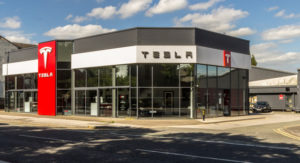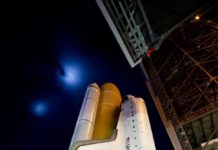 Recently, scientists raised alarm over certain issues with the red Tesla that was recently launched into outer space. These individuals worry that Elon Musk’s vehicle could carry sizeable amounts of bacteria from our planet that would contaminate Mars, the red planet.
Recently, scientists raised alarm over certain issues with the red Tesla that was recently launched into outer space. These individuals worry that Elon Musk’s vehicle could carry sizeable amounts of bacteria from our planet that would contaminate Mars, the red planet.
Planetary contamination is just one of the scenarios that NASA seeks to avoid, with very informed reasons. Should Earth’s microbes become introduced into another planet and those microbes manage to survive the environment, future testing for extraterrestrial life may come back with a false positive; the scans might detect the microbes as evidence of small-scale native life. The severity of this concern for false positives will cast a looming shadow over how scientists analyze humanity’s role within the universe.
In cases where a world has a high likelihood of microbial lifeforms, as seen on Europa, one of Jupiter’s moons, and Enceladus, one of Saturn’s, such contamination would mean Earth microbes could grow and thrive. When analyzing just how much the introduction of a foreign species has ravaged a country like Australia, contamination of a planet could lead to drastic shifts in that planet’s environment.
Introducing a new species with a penchant for aggression carries the ecological risk of thriving in numbers without predators or nature to impede growth. Native lifeforms may not be capable of defending themselves from a predatory species or simply be ill-equipped to outgrow it. The National Wildlife Federation explained the full influence of invasive species. Such creatures can prey upon indigenous species, supplant access to resources, serve as vectors for disease and even stall reproduction or consume future generations.
NASA’s Planetary Protection, a group created in order to promote responsible exploration beyond the stars, reiterated the need for humans to avoid planetary contamination. It stated that planetary protection is necessary to preserve the natural state of other worlds so that study of them is not impaired, to prevent the obstruction of efforts to sense extraterrestrial life and to ensure that Earth’s biosphere remains intact.
While NASA’s concerns are understandable, the fortunate reality of the situation is that the chances of the space Tesla crashing into a planet and contaminating that planet with microbes is minute.





